Mesotherapy in Tunisia
Search and Compare the Best Clinics and Doctors at the Lowest Prices for Mesotherapy in Tunisia

Find the best clinics for Mesotherapy in Tunisia
With Medijump you can browse 2 facilities offering Mesotherapy procedures in Tunisia. The cheapest price available is $81 in Monastir. And for the cheapest price globally, prices start from $20 in Ukraine.
Mesotherapy in Monastir
Price: $ 81
Ukraine offers the best prices Worldwide
Price: $ 20
From 11 verified reviews
Craig Mills, 30 July 2019
Excellent private health care looked after my soon after he drowned in sahara beach hotel this month would definatly recommend being cared for there staff were amazing
Aesthetica Tour, located in Boulevard Mohamed Bouazizi, Tunis, Tunisia offers patients Mesotherapy procedures among its total of 42 available procedures, across 9 different specialties. Currently, there's no pricing information for Mesotherapy procedures at Aesthetica Tour, as all prices are available on request only, whilst the national average price is approximately $81. All procedures and treatments are undertaken by the lead specialist at the Hospital, and they are not accredited by any recognized accreditations institutes
- Home
- Tunisia
Compare Before & After Photos of _procedure_photos.phpMesotherapy
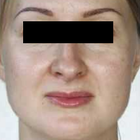
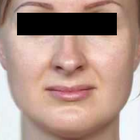
Front view
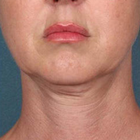
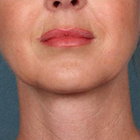
Front view
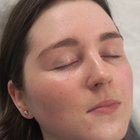
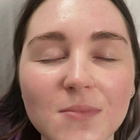
Front view
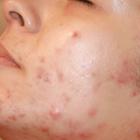
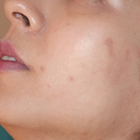
Half-side view
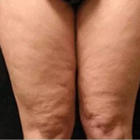
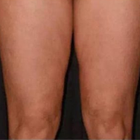
Front view
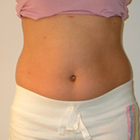
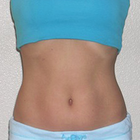
Front view
WHY US?
At Medijump, we're making medical easy. You can search, compare, discuss, and book your medical all in one place. We open the door to the best medical providers worldwide, saving you time and energy along the way, and it's all for FREE, no hidden fees, and no price markups guaranteed. So what are you waiting for?

Free

Best Price

Widest Selection

Risk-Free
What you need to know about Mesotherapy in Tunisia
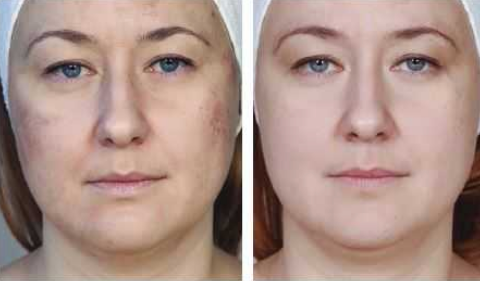
Mesotherapy is a nonsurgical technique that uses micro-injections of vitamins, hormones, enzymes, and plant extracts. Its goal is to rejuvenate and tighten the skin. It is also used to reduce cellulite, lighten pigmented skin, fade wrinkles and line, treat alopecia and encourage hair growth, recontour the body, as well as to remove fat in areas such as the thighs, stomach, buttocks, legs, hips, face, and arms.
Very fine needles are used to deliver a series of injections into the middle layer of the skin. These injections are believed to correct underlying issues, such as inflammation and poor circulation, which cause skin damage.
Before mesotherapy, you may have problems like stubborn fat in certain areas of the body, wrinkles and fine lines in the face, pigmented skin, etc. After the procedure, you’re dull and tired-looking skin will be improved, superficial wrinkles will fade, and excess fat will be reduced. If you undergo the procedure to treat alopecia, you can also expect the procedure to promote hair growth.
What does a Mesotherapy Procedure Involve?
While mesotherapy is nonsurgical and not painful, it can be slightly uncomfortable. Therefore, you may have anesthetic cream applied to your skin to numb the affected area.
Using a special short needle, you will get a series of injections. The injections can be carried out on the face, neck, scalp, chest, hands, and other areas of the body that may have problems you wish to address. There is not a standard formula for the substances injected. The practitioner may use a combination of different substances, including vitamins and minerals, enzymes (such as hyaluronidase and collagenase), herbal extracts, hormones (such as thyroxin and calcitonin), as well as prescription medicines (such as antibiotics and vasodilators). The substances used depends on what you want to treat. For instance, the treatment for cellulite and body fat reduction may use lecithin and isoproterenol.
Each injection can be given at different depths into your skin, ranging between 1 and 4 millimeters, depending on the condition you want to treat. The practitioner may flick their wrist at a rapid pace while injecting, or place the needle into your skin at an angle.
How Long Should I Stay in Tunisia for a Mesotherapy Procedure?
Mesotherapy is an outpatient procedure, so you can leave the hospital on the same day. You should be able to leave Tunisia right away, but it is recommended to wait at least a day before you travel home because you need to wait for the substances to settle down. However, since you may need a series of treatment to get the desired results, you should expect to return to the clinic or hospital between 3 to 15 times, with 7 to 14 days intervals. Therefore, the length of stay depends on how many sessions you will need until you achieve the result you wish for.
What's the Recovery Time for Mesotherapy Procedures in Tunisia?
Mesotherapy has minimal downtime. You may experience a little bruising and swelling after the procedure, but they will subside within 24 hours. Some people are able to return to work and your normal activities on the same day, while others may need to take a day off due to pain and swelling.
What sort of Aftercare is Required for Mesotherapy Procedures in Tunisia?
No special aftercare is needed, but the practitioner may give you instructions to follow, which may include what you should do to avoid complications and to reduce swelling and bruising. You can have maintenance treatments 1 – 2 times a year.
To maintain the results, particularly if you have mesotherapy to reduce signs of aging and eliminate excess fat, make sure you exercise regularly, follow a well-balanced diet plan, and limit your alcohol intake.
What's the Success Rate of Mesotherapy Procedures in Tunisia?
While there is proof showing that there can be some improvement after mesotherapy, more studies and research are needed to verify the mechanism, safety, and effectiveness of the procedure. Therefore, you should always choose a licensed practitioner with proven track records and experience if you do want to try the procedure.
According to those who practice mesotherapy, the risks tend to be minimal if you go to an experienced and trained practitioner. The side effects and risks of mesotherapy may include pain, nausea, sensitivity, bumps, swelling, bruising, itching, dark patches of the skin, redness, rash, scars, and infection.
Are there Alternatives to Mesotherapy Procedures in Tunisia?
The alternative to mesotherapy depends on the condition you want to treat, which may include:
- Injection lipolysis – mesotherapy and injection lipolysis are often thought to be the same procedure, but they are actually two different procedures. Injection lipolysis involves the injection of deoxycholate and phosphatidylcholine into the fat layer under the skin to break up fat.
- Liposuction – is one of the most popular cosmetic treatments to remove excess fat. It uses a suction technique to eliminate fat from specific areas of the body.
- Botox and dermal fillers – both Botox and dermal fillers are nonsurgical treatments to rejuvenate the skin. Botox works by blocking nerve contraction to relax wrinkles, while dermal fillers can improve skin contouring.
Whilst the information presented here has been accurately sourced and verified by a medical professional for its accuracy, it is still advised to consult with your doctor before pursuing a medical treatment at one of the listed medical providers
No Time?
Tell us what you're looking for and we'll reachout to the top clinics all at once
Enquire Now

Popular Procedures in Tunisia
Prices Start From $85

Prices Start From $167

Prices Start From $120

Prices Start From $931

Prices Start From $76

Prices Start From $5

Prices Start From $236

Recommended Medical Centers in Tunisia for Mesotherapy

- Interpreter services
- Translation service
- Religious facilities
- Medical records transfer
- Medical travel insurance
- Health insurance coordination
- TV in the room
- Safe in the room
- Phone in the room
- Private rooms for patients available

- Interpreter services
- Translation service
- Religious facilities
- Medical records transfer
- Medical travel insurance
- Health insurance coordination
- TV in the room
- Safe in the room
- Phone in the room
- Private rooms for patients available

- Interpreter services
- Translation service
- Religious facilities
- Medical records transfer
- Medical travel insurance
- Health insurance coordination
- TV in the room
- Safe in the room
- Phone in the room
- Private rooms for patients available

- Interpreter services
- Translation service
- Religious facilities
- Medical records transfer
- Medical travel insurance
- Health insurance coordination
- TV in the room
- Safe in the room
- Phone in the room
- Private rooms for patients available

- Interpreter services
- Translation service
- Religious facilities
- Medical records transfer
- Medical travel insurance
- Health insurance coordination
- TV in the room
- Safe in the room
- Phone in the room
- Private rooms for patients available

- Interpreter services
- Translation service
- Religious facilities
- Medical records transfer
- Medical travel insurance
- Health insurance coordination
- TV in the room
- Safe in the room
- Phone in the room
- Private rooms for patients available

- Interpreter services
- Translation service
- Religious facilities
- Medical records transfer
- Medical travel insurance
- Health insurance coordination
- TV in the room
- Safe in the room
- Phone in the room
- Private rooms for patients available

- Interpreter services
- Translation service
- Religious facilities
- Medical records transfer
- Medical travel insurance
- Health insurance coordination
- TV in the room
- Safe in the room
- Phone in the room
- Private rooms for patients available
Mesotherapy in and around Tunisia
About Tunisia
Tunisia is one of the few countries which can cater to everyone and it manages to combine climate, golden beaches, history, and shopping for an “all-around” experience. It has a high standard of healthcare and an excellent reputation for cosmetic surgery. Cosmetic and plastic surgeons are regulated by the Tunisian Ministry of Health and the private clinics have state-of-the-art equipment and English-speaking staff. Tunisia welcomes an ever-increasing number of medical tourists each year, many of whom travel for Mesotherapy procedures. Medical Tourists travel from all across the globe, particularly from Europe and neighboring African countries with an inferior healthcare system. Popular medical tourism destinations outside of the capital, Tunis, include Sousse and Mahdia
Popular Parts of Tunisia
- Tunis, the country’s capital, is overflowing with a history that dates from the 4th Century BC. The city is divided into two parts, the old city known as the medina and the new city (or Ville nouvelle in French). Many tourists visit Tunis to see the Archaeological Site of Carthage which is also a UNESCO World Heritage Site. The beautiful Islamic architecture in medina also attracts many tourists to the city.
- Tozeur is known as a home to an enchanting desert oasis, which was a place to rest and refuel for caravans crossing the Sahara. Another main attraction in the city is the medina, where tourists can find lines of beautiful brick-patterned traditional dessert houses. Chott el Djerid, Sahara’s largest salt pan, is a popular day-trip destination.
- Sousse is located on the coast of the Mediterranean Sea. It offers good beaches with a clear blue sea. The city has been fought over by the Romans, Arabs, and Europeans, giving it a colorful history and culture. Sousse Archeological Museum is one of the most visited sites in the country; it has the second largest collection of mosaics in the world.
- Hammamet is the country’s original tourism resort. The city has beautiful gardens filled with oranges, lemons, and other citrus plants. It also has wonderful sandy beaches with crystal clear water. Just like any other city in Tunisia, this city is also brimming with interesting histories. Sites such as The Gafsa Museum and Bardo Museum will give insights about the Islamic faith and culture.
- Douz, also known as “the gateway to the Sahara.” Tourists who want to experience the Sahara Desert come to this city. Take a camel trip or a 4-wheel-drive into the Sahara or see the Museum of the Sahara that has an interesting collection portraying traditional Saharan life.
Weather and Climate in Tunisia
The North of Tunisia has a subtropical Mediterranean climate with mild rainy winters and hot summers. The South and inland areas have a tropical desert climate.
The weather is relatively comfortable throughout the year. Summer starts in June and lasts until August. The average temperature is between 28 °C to 32 °C with July and August being the hottest months. The heat is not as bad on the coast because of the seaside breeze. Be aware that July to September is the jellyfish season.
The heat decreases in autumn and the weather is somewhat more comfortable. There are occasional rain showers in September. The temperature in October can be like summer during day time, but cold at night. October has more rain than September. The season lasts for three months from September to November with an average temperature of around 19 °C to 29 °C.
The weather in winter can be uncertain. The average temperature is between 16 °C and 18 °C, but it can drop to 7 °C at night and below 0 °C in highlands and deserts and a clear sky is rare during this season.
Spring comes in March and the temperature can rise to 20 °C. Mornings and nights are cold; there is still a high probability of rains and thunderstorms at the end of this season.
Getting Around in Tunisia
Tunisia has several international airports. The main airport is Tunic-Carthage International Airport. It has international connections with major European countries and the Middle East. The airport is the hub for Tunisair, Tunisair Express, and Nouvelair. Other airports that have international flights are Enfidha-Hammamet, Monastir Habib Bourguiba, Djerba-Zarzis, and Tabarka-Aïn Draham.
Taxis and buses are available to get to the city center from Tunis Airport. The SNT bus line departs every 30 minutes from the airport, the ticket costs less than 1 TND. There is also the TUT bus which departs every 15 minutes and is more luxurious and expensive.
Airport taxis are available at the airport taxi stand and are usually metered. Always make sure that the driver turns the meter on before riding the taxis. A journey to the city should cost around 5 TND. An extra cost will be added if you have baggage.
Getting around in Tunisia can be done by several transportation modes. Tunisair Express provides domestic flights between Tunis, Tozeur, Djerba, and Gabes. The Train is also available and the national train company in the country is SNCFT that runs modern and comfortable trains from Tunis to Sousse, Sfax, and Monastir. There are three classes of service that tourists can choose. The fare from Tunis to Sousse is between 6 to 10 TND. The long-distance bus is an economical option to travel between big cities such as Tunis, Hammamet, and Nabeul. The buses usually depart every 30 minutes.
Tourist Visas in Tunisia
Citizens of 97 countries (including Australia, China Singapore, the United States, and Russia) can visit and stay in Tunisia for up to 90 days without a visa. Other nationalities are advised to check with their local Tunisia embassy. Tunisia provides an online visa application for nationalities that needs a visa to enter. The eVisa will simplify the process of obtaining travel authorization to enter the country.
Additional Information
-
Local Currency: the local currency is the Tunisian dinar (TND). 1 USD converts to 2.61 TND.
-
Money & Payments: ATMs can be found in most cities and in all tourist areas. Many ATMs have withdrawal limits of 400 TND. Credit cards (MasterCard and Visa) are accepted in major cities and tourist areas. They can be used for shops, car hire, or top-end accommodation. Always make sure to carry cash if you want to travel outside major cities. Tipping is not necessary but will be appreciated.
-
Local Language: Arabic is the official language of Tunisia. French is very common due to the country’s former status as a French protectorate. English is still very limited except in the tourist areas and expensive hotels.
-
Local Culture and Religion: Islam is the major religion with 98% of the population identified as Muslim. There is a small group of Christian and Jews. Since most of the population is Muslim, always remember that the dress code is important in Tunisia.
-
Public Holidays: Tunisia celebrates major Islam holidays. The country hosts several annual festivals throughout the year such as The International Festival of the Sahara, Yasmine Hammamet Festival, and the International Festival of Carthage.
Popular Searches
- Plastic Surgery in Thailand
- Dental Implants in Thailand
- Hair Transplant in Thailand
- Breast Augmentation Thailand
- Gastric Sleeve in Thailand
- Gender Reassignment Surgery in Thailand
- Laser Hair Removal in Bangkok
- Botox in Bangkok
- Dermatology in Bangkok
- Breast Augmentation in Bangkok
- Coolsculpting in Bangkok
- Veneers in Turkey
- Hair Transplant in Turkey
- Rhinoplasty in Turkey
- Stem Cell Therapy in Mexico
- Rhinoplasty in Mexico
- Liposuction in Mexico
- Coolsculpting in Tijuana
- Rhinoplasty in Korea
- Scar Removal in Korea
- Gastric Sleeve in Turkey
- Bone Marrow Transplant in India
- Invisalign in Malaysia
- Plastic Surgery in the Dominican Republic
- Tummy Tuck in the Dominican Republic
- Plastic and Cosmetic Surgery in Poland
- Rhinoplasty in Poland
- Hair Implant in Poland
- Dental Implants in Poland
- IVF in Turkey

